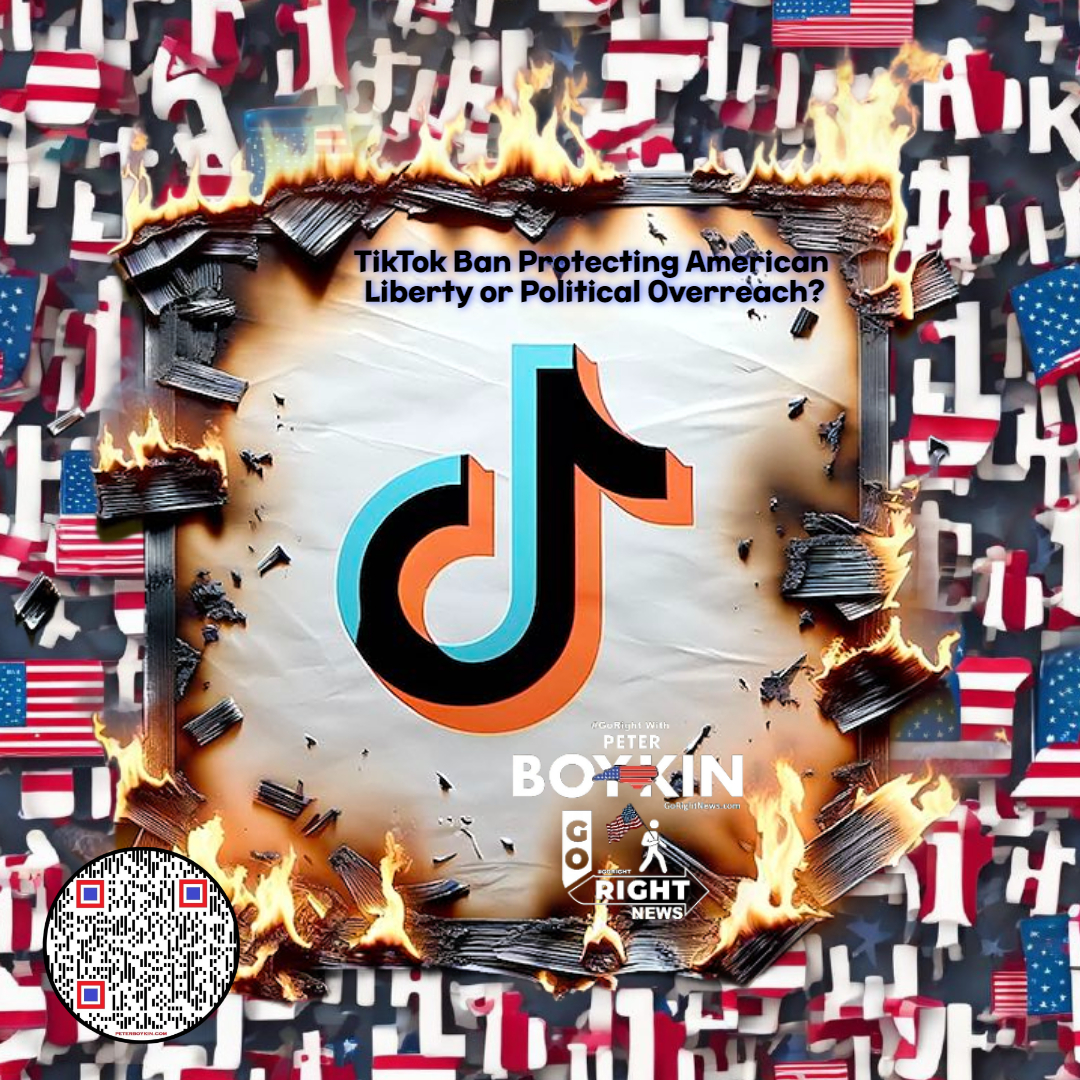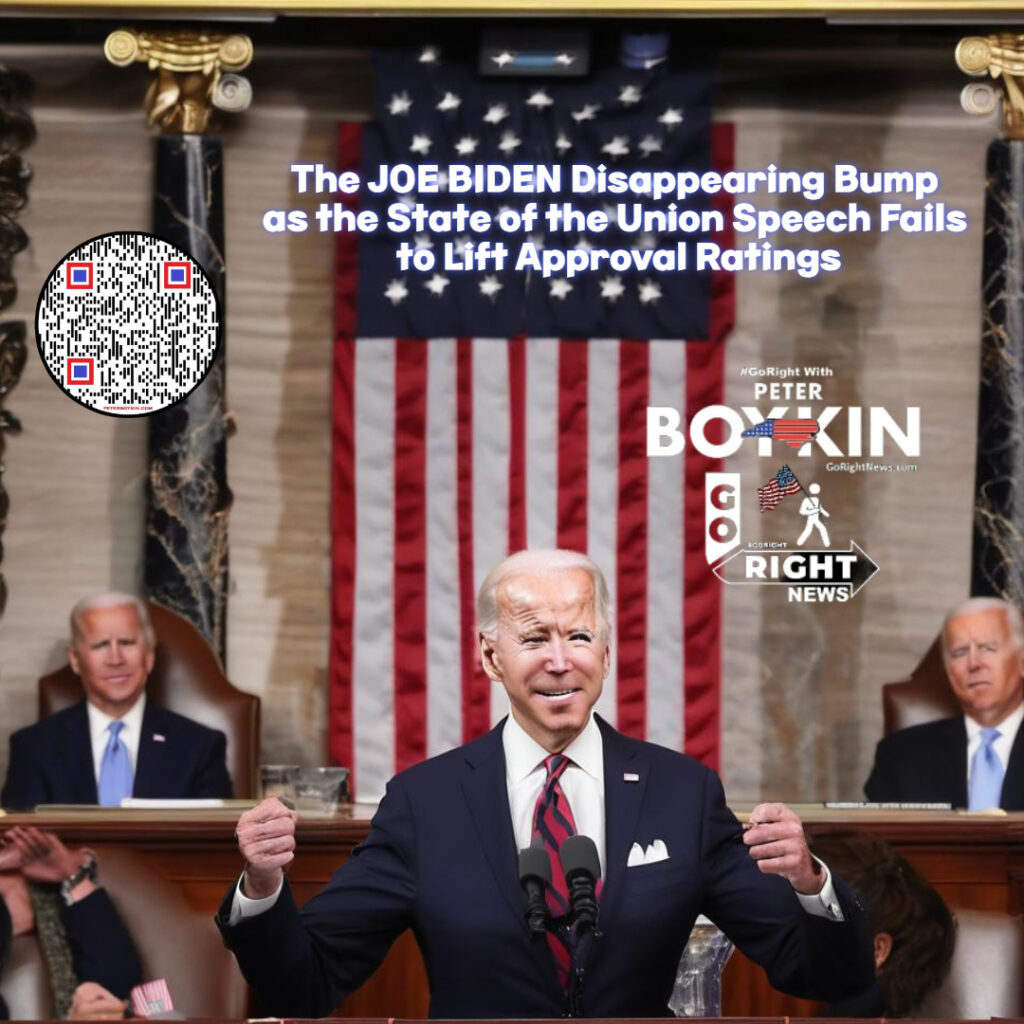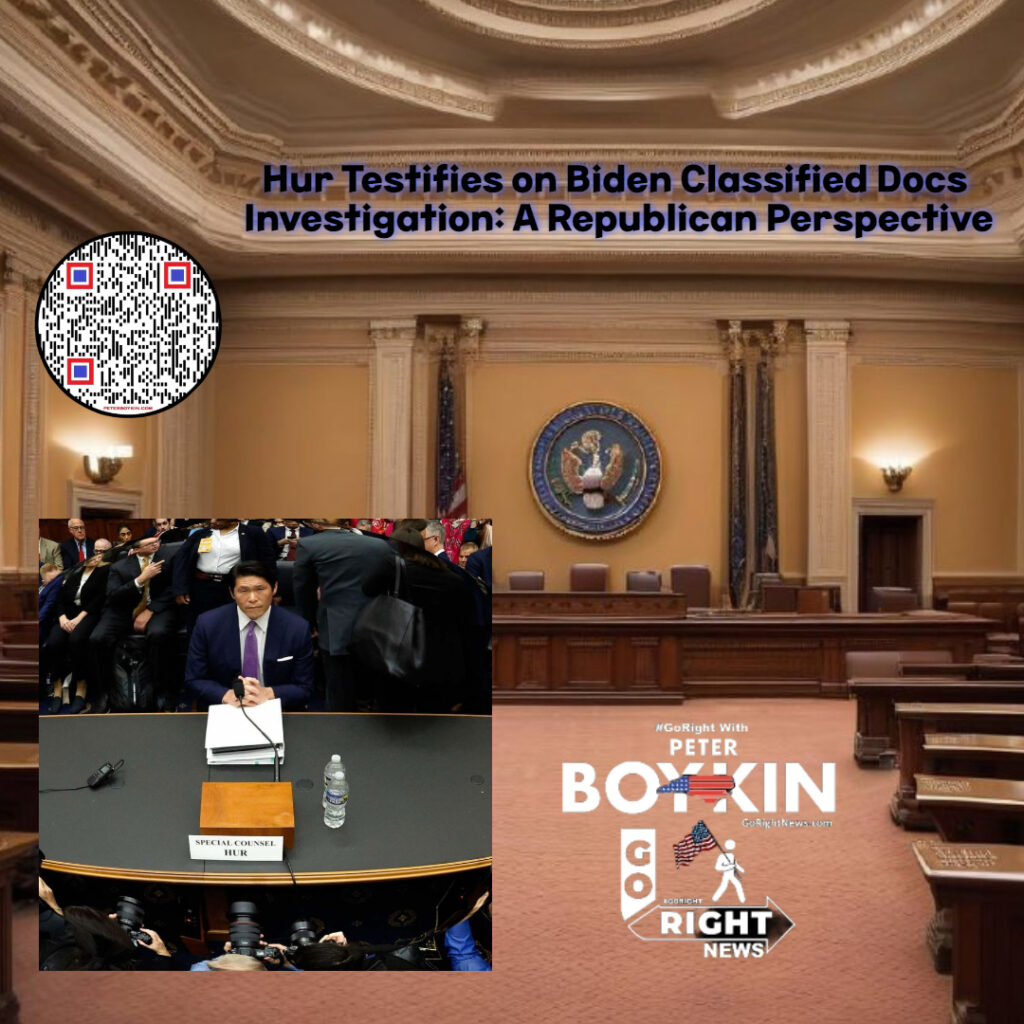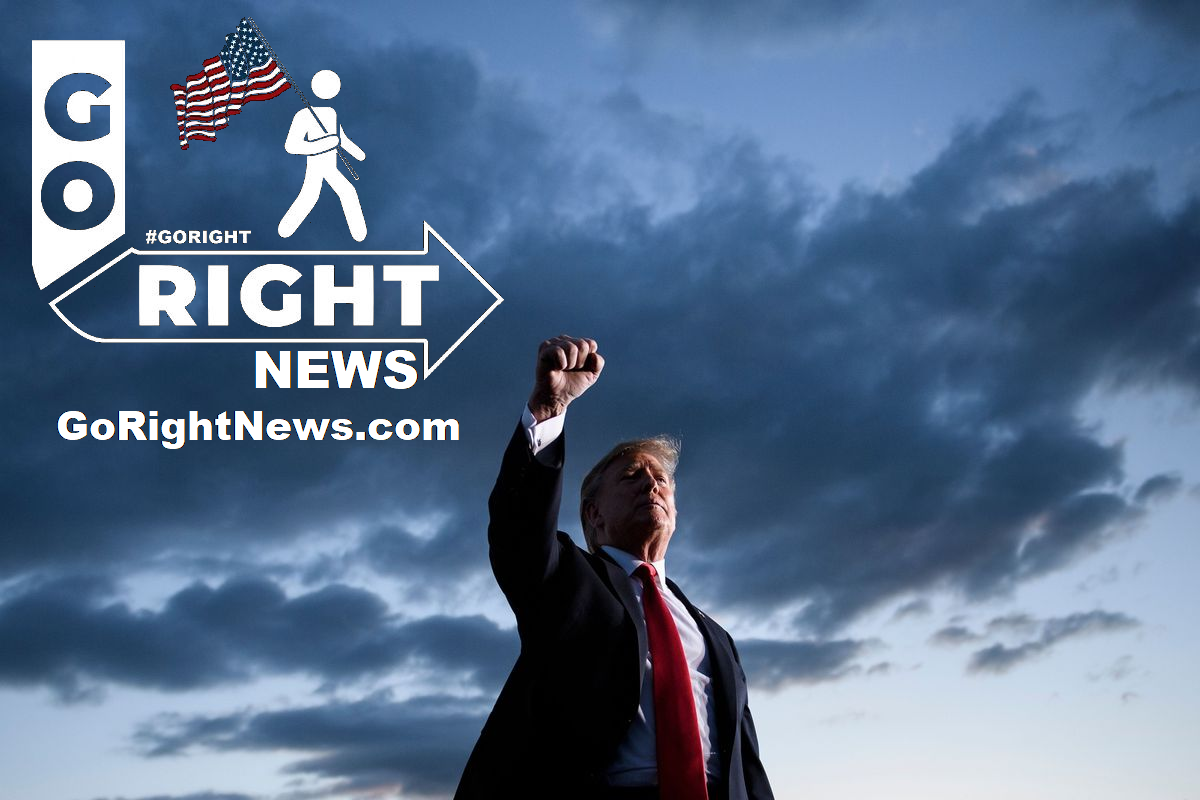TikTok Ban Protecting American Liberty or Political Overreach?
Shared By Peter Boykin – American Political Commentator / Citizen Journalist / Political Candidate

Should we ban TikTok?
TikTok Ban Protecting American Liberty or Political Overreach?
As lawmakers in D.C. prepare for a pivotal vote, the specter of a potential TikTok ban looms large over the nation. The Chinese-owned social media app has come under intense scrutiny amid concerns over national security and foreign influence. With tensions escalating, the stage is set for a showdown between advocates of free expression and defenders of American sovereignty.
Amidst mounting concerns over national security and foreign influence, Capitol Hill braces for a pivotal showdown as lawmakers deliberate on the fate of TikTok, the Chinese-owned social media juggernaut. The bipartisan push to ban TikTok has ignited fierce debate, with proponents citing security risks and opponents decrying government overreach. With the stakes higher than ever, the battle over TikTok epitomizes the clash between safeguarding American values and curbing perceived threats.
Intelligence experts and the FBI have long sounded the alarm on TikTok’s potential as a tool for Chinese espionage, warning of its ability to harvest user data and manipulate public opinion. As Congress convenes to vote on the ‘Protecting Americans from Foreign Adversary Controlled Applications Act,’ the nation grapples with the implications of restricting a platform with over 170 million users.
On one side of the aisle, proponents of the ban argue that TikTok poses a grave national security threat, alleging that its Chinese parent company, ByteDance, could exploit user data and propagate propaganda. The bill, if passed, would compel ByteDance to divest from TikTok within five months or face a ban on distribution in the U.S. With bipartisan support and backing from President Joe Biden, the bill appears poised for passage in the House.
However, staunch opposition from high-profile GOP lawmakers, including former President Donald Trump and Tesla CEO Elon Musk, has injected uncertainty into the debate. Trump contends that a TikTok ban would only bolster the dominance of tech giants like Facebook, while Musk denounces it as government censorship. Their rallying cry against the bill underscores the deep divisions within the Republican Party over issues of national security and free speech.
https://truthsocial.com/@realDonaldTrump/posts/112058087970558736
Trump vs. TikTok:
Former President Donald Trump has emerged as a vocal opponent of the proposed ban, arguing that it would play into the hands of his political rivals and stifle competition in the social media landscape. With his eye on the upcoming midterm elections, Trump sees an opportunity to rally his base and score political points by championing free speech and pushing back against government overreach.
Resistance in Congress:
Despite bipartisan support for the bill, dissenting voices within the GOP have raised concerns about the potential implications of a TikTok ban. Representatives such as Thomas Massie and Marjorie Taylor Greene warn of government overreach and the erosion of First Amendment rights, echoing Trump’s sentiments and rallying against what they perceive as an assault on American values.
A Nation Divided:
As the debate rages on, the American public finds itself divided over the issue of TikTok. While some view the app as a threat to national security and advocate for its banishment, others see it as a platform for free expression and creative innovation. With millions of users caught in the crossfire, the stakes have never been higher as Congress prepares to cast its vote.
The so-called TikTok ban is a trojan horse.
The President will be given the power to ban WEB SITES, not just Apps.
The person breaking the new law is deemed to be the U.S. (or offshore) INTERNET HOSTING SERVICE or App Store, not the “foreign adversary.”https://t.co/iKtAQFGeQH pic.twitter.com/P26hEbzQrf
— Thomas Massie (@RepThomasMassie) March 12, 2024
As lawmakers grapple with the decision, the American public finds itself divided over the prospect of a TikTok ban. While some view it as a necessary safeguard against foreign influence, others fear it as an encroachment on individual liberties and creative expression. With the Senate set to weigh in on the matter, the fate of TikTok hangs in the balance, embodying the broader struggle between protecting American interests and preserving democratic ideals.
🧵‼️ The lengths some in Congress will go to for more authority and control over Americans’ freedom of speech never ceases to amaze me. The TikTok bill recently advanced by the House would endanger the 1st amendment and empower the federal govt to ban social media platforms…
— Rand Paul (@RandPaul) March 9, 2024
In the face of mounting pressure, TikTok has launched a fervent campaign to rally its users against the proposed ban, mobilizing millions to advocate for their right to free expression. Yet, amidst the fervor of political rhetoric and grassroots activism, the true impact of a TikTok ban remains uncertain, leaving lawmakers to navigate the complex intersection of national security, technology, and civil liberties. As the debate unfolds on Capitol Hill, the nation watches with bated breath, awaiting a verdict that will shape the future of social media and American democracy.
Indeed, the debate surrounding the potential ban on TikTok raises crucial questions about the extent of government intervention in the digital sphere and its implications for individual freedoms and economic interests. While concerns about national security are valid, singling out TikTok for its ties to the Chinese government overlooks the broader landscape of business dealings with China and the sharing of sensitive information.
The selective targeting of TikTok underscores the danger of allowing government overreach to dictate the fate of businesses and platforms based on political motives rather than objective risk assessments. The Constitution guarantees the protection of free expression and due process, yet the prospect of a government-imposed ban on TikTok raises concerns about the erosion of these fundamental rights.
While companies have the prerogative to safeguard their systems from potential threats, granting the government unchecked authority to determine which platforms are permissible sets a dangerous precedent. The power to shut down businesses at will undermines economic stability and stifles innovation, paving the way for arbitrary decision-making and censorship.
Furthermore, the reluctance to acknowledge the role of other businesses in facilitating ties with China highlights the inconsistency in the government’s approach. If national security is the primary concern, then a comprehensive strategy addressing all avenues of foreign influence is warranted, rather than singling out a single platform.
At its core, the debate over TikTok reflects broader anxieties about the free flow of information and the democratization of media in the digital age. Platforms like TikTok empower individuals to become citizen journalists and whistleblowers, challenging the monopoly of traditional news outlets and providing alternative narratives. This disruption to the status quo threatens established power structures, prompting attempts to exert control and limit dissent.
As the discussion unfolds, it is imperative to scrutinize the motivations behind the push to ban TikTok and advocate for a balanced approach that upholds both national security and constitutional principles. The future of digital governance hinges on striking a delicate balance between safeguarding against threats and preserving the fundamental rights that underpin our government as a republic.
As Congress grapples with the decision to ban TikTok, the nation stands at a crossroads, torn between competing visions of security and liberty. With Trump leading the charge against the proposed ban and lawmakers weighing the risks and rewards, the outcome of the vote remains uncertain. Will Trump emerge victorious in his battle against TikTok, or will concerns over national security carry the day? Only time will tell as the fate of TikTok hangs in the balance.
[Source: Daily Mail, Pew Research, CBS News, Axios, Text of the bill]
Update:
House Passes Bill to Potentially Ban TikTok in U.S.: What’s Next?
In a decisive move, the House of Representatives overwhelmingly voted in favor, with a margin of 352-65, of a bill that could lead to the banning of TikTok in the United States or compel its Chinese parent company, ByteDance, to divest from the popular app.
The crucial next step involves President Joe Biden signing it into law, a move he has indicated he is inclined to make.
However, before the bill reaches Biden’s desk, it must navigate through the Senate. Despite bipartisan support for the measure, Senate Majority Leader Chuck Schumer has yet to commit to bringing it to a vote, leaving some uncertain about the bill’s fate.
According to a source cited by the NY Post, Schumer’s stance remains ambiguous, stating, “No one really knows his view. I think he hasn’t decided.”
The bill has sparked debate, particularly among Republicans. Some have raised valid concerns about its potential infringement on First Amendment rights and interference in the free market—a viewpoint that resonates with many.
However, there are also unsubstantiated claims circulating within conservative circles, suggesting that the bill could empower Biden to dismantle platforms like X and Rumble.
A careful examination of the bill’s contents reveals that it explicitly targets companies “controlled by a foreign adversary,” dispelling these unfounded allegations.
As the bill progresses, it may undergo amendments in the Senate. Some legislators advocate for additional safeguards to curb the expansive powers granted to the President, proposing measures such as granting Congress veto authority.
The road ahead for the bill remains uncertain, with its fate hanging in the balance as it awaits Senate deliberation and potential modifications.
This Article is Brought to you by Go Right News and Edited by Peter Boykin
Visit GoRightNews.com for More Articles and Visit PeterBoykin.com to Learn more about Peter Boykin


